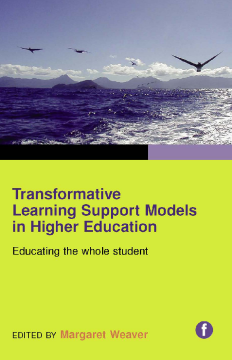
Additional Information
Book Details
Abstract
The student learning experience in modern higher education settings is changing rapidly. Students no longer have a linear approach to education and increasingly their expectations are that there will be flexibility and support embedded in their courses. Consequently institutions need to have a holistic approach to enhancing student learning. The significance of the total learning environment - academic, physical, virtual, support - to the student experience is emerging; however, there has been little study of the impact of the new learning environments on student learning behaviours, in particular on support for learners. Nonetheless, in practice, academic services - libraries, keys skills teams, student support, IT and academics - are working innovatively across service boundaries to bring about transformations in their students' lives. This edited collection from a team of international contributors plots these developments and uses carefully selected case studies to highlight global best practice in universities and colleges. The book is divided into three parts covering transformation through strategy, policy and organization; delivery; and integrative practice. Key areas covered are: the changing profile of learners; the redesign of learning support; engaging learners by reshaping learning environments; next-generation learning spaces; the integration of physical and virtual environments; engagement in widening participation; learning partnerships; and, learning using research-informed approaches aligned to pedagogy. This timely book will act as a strategic planning tool by uncovering models that will allow practitioners to reflect on their own organizational contexts. It will also help to raise the profile of learning support within institutions by keeping library managers, student service managers, academics and organizational leaders up to date with policy and developments; and, by interfacing with the global skills agenda, will be of interest to a wide range of staff including support professionals, educators and stakeholders. With its bite size chunks of information showing the diversity of the LIS sector and its opportunities for career development, it will also be a helpful text for students. The editor Margaret Weaver BA MCLIP MSc HEA is Head of Learning and Information Services at the University of Cumbria (formerly St Martin's College). She is a Fellow of the Higher Education Academy and a Teaching Fellow of the University. The contributors Pat Atkins, Peter Brophy, Scott C. Brown, Philip Cohen, Jen Harvey, Hannah Hough, Philippa Levy, Sara Marsh, Lindsey Martin, Glynnis Platt, Kent Porterfield, Frank Rennie, Sue Roberts, Craig G. Stephenson, Jan Stewart, Les Watson, Margaret Weaver.
"The challenging of some of our own thoughts and perceptions is, indeed, one of the strengths of the book and the editor, Weaver, is to be congratulated on gathering together these thought-provoking chapters…and the book as a whole will inspire its readers to move from 'artful doing' to 'artful knowing'." - Library and Information Research
"The book's strength is the real life examples it draws on and assesses, allowing the reader to see what has worked well in practice in various higher education institutions…anyone interested in the changing higher education landscape and how it affects professionals in all areas of learning support should find something to interest them within its pages." - CILIP Health Libraries Group Newsletter
"It is very interesting to read how some institutions are developing their services to encompass new ideals of learner support and focus on the learner rather than the service. It’s also apparent that there isn’t a single solution – depending on the needs of your student body, your institution, and your staff, you may want to borrow ideas from some or all of these authors. You could dip in and read one or two chapters, but will gain more by reading several chapters or the whole book." - Ariadne
Margaret Weaver BA MCLIP MSc HEA is Head of Learning and Information Services at the University of Cumbria (formerly St Martin’s College). She is a Fellow of the Higher Education Academy and a Teaching Fellow of the University.
